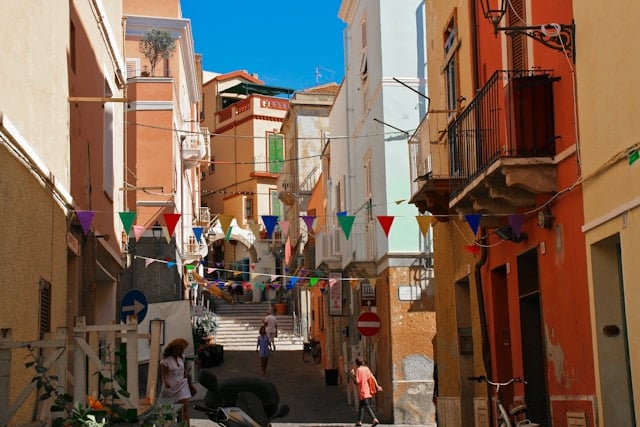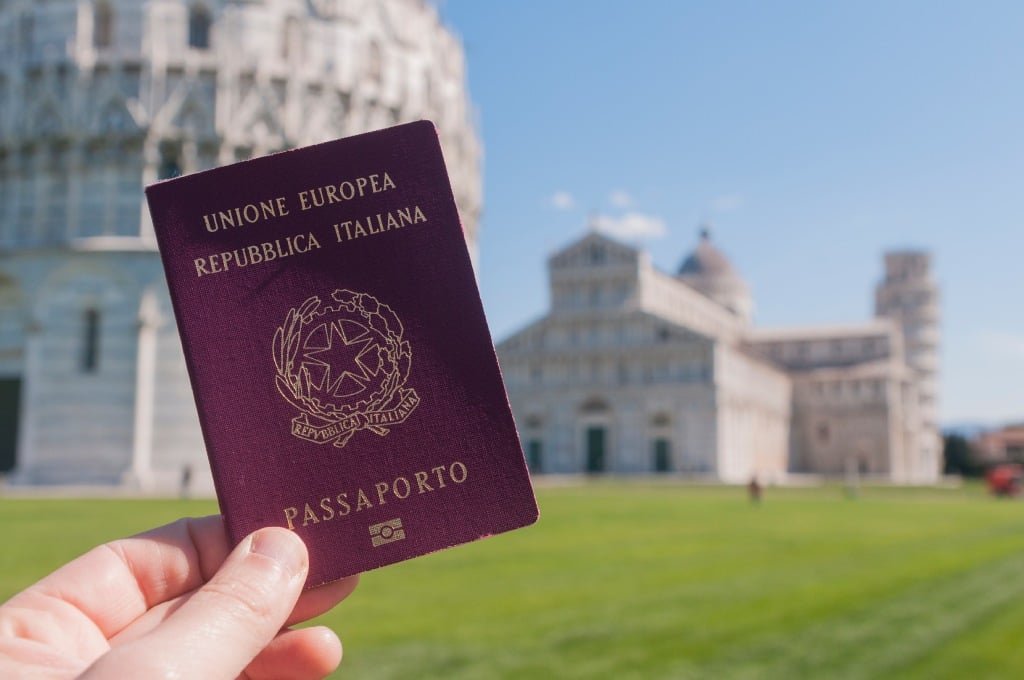The dramatic police rescue of 51 children on a bus hijacked by their Italian driver of Senegalese origin on March 20th has gripped Italy and rekindled debate about its citizenship laws.
“If there are children who are not Italian citizens, we have studied this question and we will complete the process so that they can become Italian,” Salvini said after meeting five of the children and some of the police who saved them in Rome.
READ ALSO: What does it mean to be a 'New Italian'? The question facing a divided Italy

Matteo Salvini takes a selfie with some of the children by the Trevi Fountain in Rome. Photo: AFP
Salvini, the head of the anti-immigration League party, stressed that Italian nationality would be awarded “without any variation in the law, since the law exists and works, we do not change it”.
Children of foreign parents who are born in Italy can only apply for citizenship when they reach 18.
It is not known how many of the children are concerned, but 14-year-old Ramy, born in Italy to Egyptian parents, and 13-year-old Moroccan Adam played key roles by calling police during the hijacking.
As some Italians and Ramy suggested changes to the citizenship law, Salvini had earlier told the boy: “Get elected and then you can make the law.”
The previous centre-left government said it would change the law to make it easier to grant citizenship to foreigners born in Italy but the law was never passed, largely due to opposition from the League.
READ ALSO: Italy bus hijacker says he 'heard voices' of drowned migrant children

Photo: Flavio Lo Scalzo/AFP
Salvini has said he will try to take away the Italian nationality of the arrested bus driver, which he acquired by marrying an Italian, thanks to a tough anti-immigrant decree which became law last year.
He also paid homage to a 13-year-old Italian boy who offered himself as a hostage while his friends were “in panic, crying and praying.”
“He is a young Italian so I can't even give him double-Italian nationality,” Salvini said.
READ ALSO:
- Italy promises tighter checks on driving licences after school bus hijacking
- 'Mum, the driver wants to kill us': Survivors of Italy's bus hijack describe terror
- Driver sets Italian school bus on fire with 51 children inside
According to the most recent data, Italy naturalised 146,000 foreigners in 2017, more than any other European Union country, including 54,000 minors who became adults.
Nationality is a sensitive issue in Italy which is undergoing a birthrate crisis. Legally resident foreigners represent 8.5 percent of the population, rising to 9.7 percent of children under 10, 13 percent under five and 14.5 percent of children born last year.
READ ALSO: Immigration to Italy: a look at the numbers

Photo: Filippo Monteforte/AFP




 Please whitelist us to continue reading.
Please whitelist us to continue reading.
Member comments